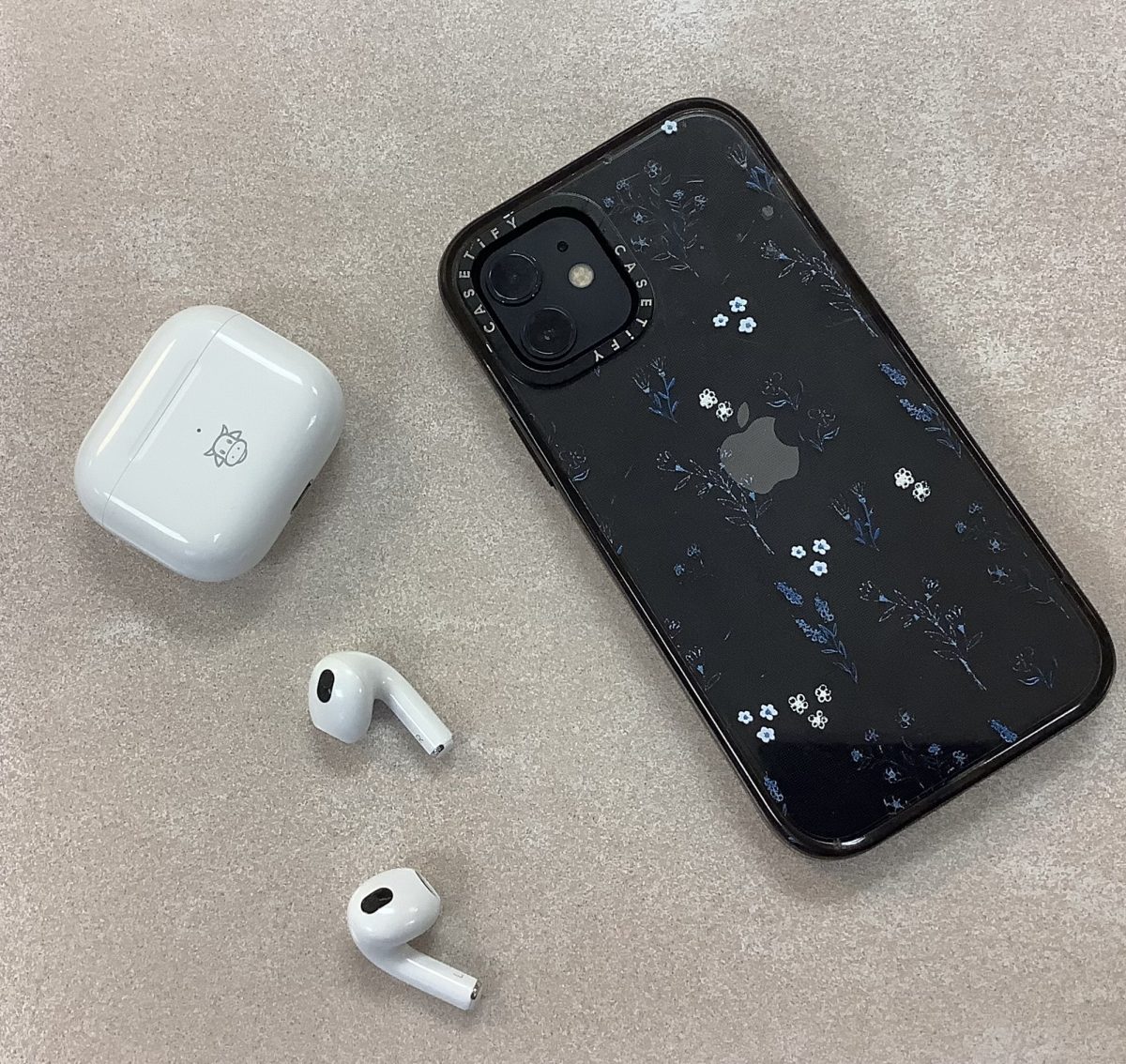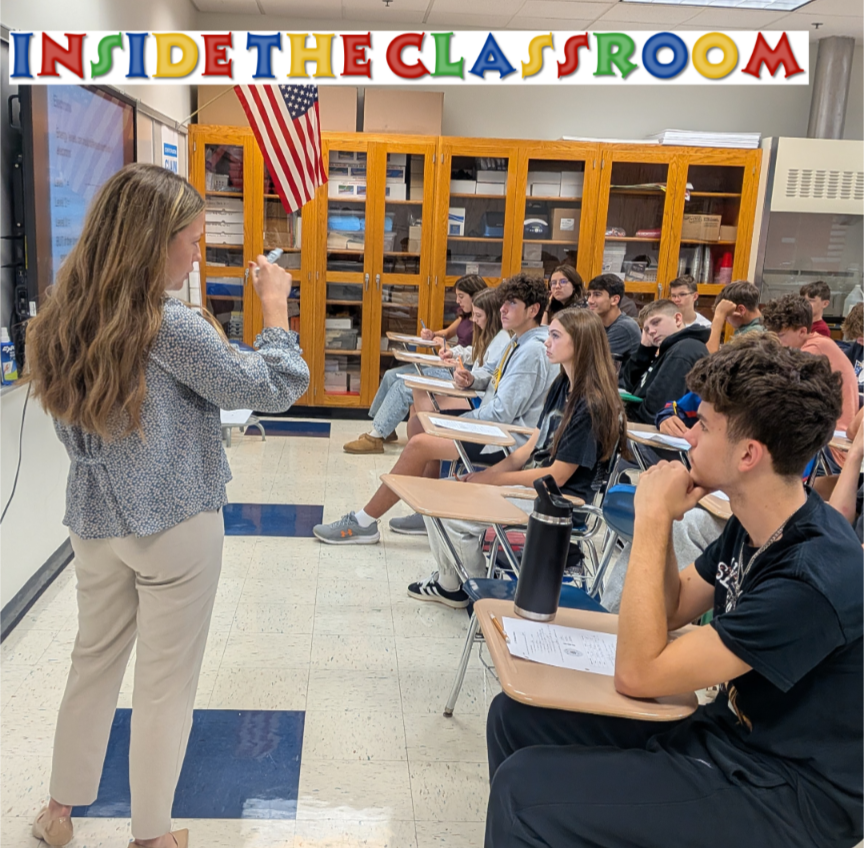All students have different things that help them focus. For a lot of students, listening to music or having audio stimuli is something that some students say helps them, but not all teachers agree with that. This brings the question: Should students be allowed to have personal technology in the classroom?
According to the Norwin Student Handbook 2023-24 on page 83-84:
- Students are permitted to use their personal electronic device in hallways between
academic classes and during assigned lunches to:- text or access school-appropriate applications
listen to music, etc. (only with the use of earphones/headphones) - Students must immediately remove their earphones/headphones and/or stop using their
phone in general, when directed to do so by any faculty/staff member and/or when the PA
System is used for administrative communication/alarm notifications.
- text or access school-appropriate applications
Norwin High School policy stresses students can not use air pods and listening to music during class time.
“Having my airpods in class definitely does help me focus in class, especially if other kids are talking around me,” said senior Kyliegh Schaefer. “I don’t use them during lectures out of respect for the teachers, but during personal work I almost always like to have music on.”
According to healthline.com, listening to music while studying can improve mood, motivation, concentration, memory, and brain stimulation. These are all benefits that should be promoted in the classroom.
Despite the benefits of listening to music, not all students chose to.
“I don’t really care whether or not I’m listening to music,” said junior Lukas Dimitroff. “I listen to music often while doing school work, but I don’t struggle to focus without it either.”
In addition to helping students focus, listening to music while studying has proven to be extremely beneficial to kids with neurodevelopment disorders, such as ADHD.
“In some cases,” said William E. Pelham Jr., Director of the Center for Children and Families conducting a study at Florida International University. “We found listening to music helped the kids with ADHD to complete their work. Actually for this subgroup, the effect of music on them was nearly as effective as medication.”
However AirPods aren’t the only problem in classrooms. Some teachers think phone use has become such an excessive problem, they use phone caddies. This restricts students from being able to have any access to their phones for the entire period. If students don’t have access to phones, they’re unable to listen to their choice of music. It’s known not all students use their phones for appropriate reasons in class, but should that kids who do use them appropriately also have to lose privileges?
Some teachers think storing the phones during class is beneficial, but some do not.
“I don’t think it helps students grow up,” said David Street, a German teacher without a phone caddy. “I wish the phones didn’t exist though, because I don’t think anyone uses them for anything educational, and that can be unhealthy.”
Overall, it is up to the teachers if they want to have a phone caddy or allow music and phones in the classroom.









